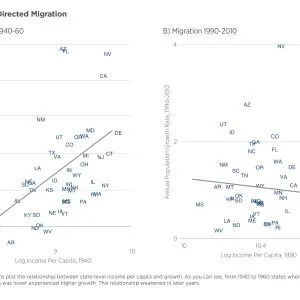- About
- Network
- Research Initiatives
- Big Data Initiative
- Chicago Experiments Initiative
- Health Economics Initiative
- Industrial Organization Initiative
- International Economics and Economic Geography Initiative
- Macroeconomic Research Initiative
- Political Economics Initiative
- Price Theory Initiative
- Public Economics Initiative
- Ronzetti Initiative for the Study of Labor Markets
- Socioeconomic Inequalities Initiative
- Research Initiatives
- Scholars
- Research
- Can Pollution Markets Work in Developing Countries? Experimental Evidence from IndiaMichael Greenstone, Rohini Pande, Nicholas Ryan, and Anant SudarshanLarge Language Models, Small Labor Market EffectsAnders Humlum and Emilie VestergaardPaths to the PeripheryJames Robinson
- Insights
Videos
BFI Youtube Channel
- Events
Upcoming Events
- News










